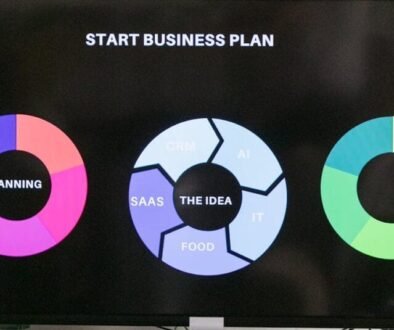High Paying Second Act Jobs for People Over 50

Introduction to career reinvention after 50
The idea of starting a new career after 50 can feel both practical and energizing. Many people at this stage want roles that reward experience, provide flexibility, and avoid unnecessary physical strain. Several real-world jobs meet those criteria, offering steady pay and clear paths for growth.
This piece outlines ten roles that suit older adults seeking meaningful work without burnout. For each job, you’ll read what the role entails, typical earnings, how to get started, who it suits best, and where to find openings.
Short and useful.
What to look for in second-act jobs
When evaluating options, focus on transferable skills: communication, organization, mentoring, and subject-matter expertise. Roles that allow you to work remotely or control your schedule often fit better with life after 50.
Also consider risk and upside. Commission-based work can pay well, but it requires a lot of hustle. Contract and freelance roles offer variety and autonomy, whereas corporate or institutional positions provide steady benefits and structure.
Finally, check technical requirements. Many of these jobs require basic digital fluency—video calls, shared documents, and standard software tools. A short course or certification can close that gap quickly.
Remote professional and administrative roles
Virtual project manager overview and earnings
A virtual project manager keeps remote teams aligned, manages timelines, and ensures deliverables arrive on time. Daily tasks include running meetings, tracking tasks with project tools, and coordinating stakeholders.
Starting pay typically ranges from about $75,000 to over $110,000 per year. With project management certifications (PMP, PRINCE2) and senior experience, salaries can exceed $120,000 and reach higher in some organizations.
Get comfortable with tools like Asana, Trello, Slack, and Zoom. Strong organizational skills and leadership experience matter more than age. Apply on sites such as We Work Remotely, Remote.co, and LinkedIn remote listings.
Virtual assistant for professionals overview and earnings
Virtual assistants support busy executives and entrepreneurs with tasks such as scheduling, email management, travel arrangements, and simple research. The work is varied and often predictable.
Hourly rates usually fall between $22 and $40, depending on complexity and client. Familiarity with Google Workspace, Microsoft Office, calendar systems, and basic CRM tools is required.
Platforms such as Belay, Boldly, Time Etc., and general remote job boards list VA roles. Reliability, responsiveness, and a neat virtual workspace are the core qualifications.
Medical and technical transcriptionist overview and earnings
Transcriptionists convert audio into accurate text. Medical and legal transcripts demand exact terminology and confidentiality, which keeps human transcribers in demand.
Typical pay ranges from $18 to $32 per hour. Specialists in medical or legal fields typically earn higher salaries; some expert transcribers also earn more through niche vendors.
You’ll need fast typing—roughly 60 WPM or higher—sharp proofreading skills, and discretion around private information. Entry points include Rev, TranscribeMe, and direct contracts with medical transcription services.
Knowledge sharing and training careers
Online course creator overview and earnings
Course creators package expertise into video lessons, guides, and downloadable resources. Topics span hobbies to professional skills, and once a course exists, it can generate passive income.
Monthly earnings vary widely: some creators make a few hundred dollars, while others earn thousands or more. Success ties closely to audience size and marketing effort.
Tools include Teachable, Udemy, and self-hosted WordPress sites with plugins like LearnPress. Basic video editing and curriculum design skills will help. Building an audience takes persistence.
Corporate trainer and facilitator overview and earnings
Corporate trainers develop and deliver workshops on leadership, compliance, and soft skills. Work can be full-time or contract-based, presented in person or via videoconference.
Salaries commonly range from $65,000 to $100,000 for full-time roles. Contractors typically earn $40 to $75 per hour, depending on industry and expertise.
Strong public speaking skills and demonstrable industry knowledge are key. Look for openings on LinkedIn, Indeed, and through professional training organizations.
Business and life coach overview and earnings
Coaches guide clients through career shifts, business challenges, and personal goals using one-on-one sessions. Many build private practices and charge hourly or package fees.
Rates run from $60 to $250 per hour, influenced by certifications, track record, and niche focus. Coaching credentials, such as ICF certification, increase credibility and client trust.
Marketing a coaching practice takes time. Utilize LinkedIn, professional directories, and local networking to expand your clientele.
Writing funding and content roles
Grant writer overview and earnings
Grant writers research funders, craft proposals, and manage application deadlines for nonprofits, schools, and small businesses. The work is detail-oriented and mission-driven.
New grant writers often charge $30 to $55 per hour. Experienced specialists can command $75 to $125 per hour, particularly for complex government or foundation grants.
Strong research and persuasive writing skills are necessary. Find work on Upwork, freelance marketplaces, and the Grant Professionals Association job board.
Freelance writer and editor overview and earnings
Freelance writers produce articles, web content, white papers, and more. Editors refine drafts and ensure consistency. Demand exists across industries, especially for niche knowledge.
Pay rates commonly range from $30 to $75 per hour. Rates depend on expertise, portfolio strength, and the client’s budget.
Build a portfolio, register on ProBlogger, Upwork, or Contently, and cultivate long-term client relationships to stabilize income.
Local and relationship-based careers
Real estate agent overview and earnings
Real estate agents help clients buy, sell, or rent properties. The role mixes sales, customer service, and local market knowledge.
Annual earnings typically fall between $50,000 and $100,000, but commissions and market conditions cause wide variation.
Licensing is required and varies by state. Strong interpersonal skills and community ties are significant advantages. Begin by reaching out to local brokerages and utilizing realtor.com to identify potential leads.
Creative entrepreneurship and content creation
Content creator overview and monetization paths
Content creators produce video, audio, or written material on platforms such as YouTube, podcasts, or blogs. Monetization comes from ads, sponsorships, affiliate sales, and product offerings.
Top creators earn significantly—some make hundreds of thousands per month. Typical earnings take time to build, relying on consistency, compelling storytelling, and audience engagement.
You can begin on YouTube, Anchor FM for podcasts, or a WordPress site. Learn introductory video and audio production, and plan a content calendar. Monetizing often combines several income streams.
How to get started and where to apply
Certifications, tools, and early steps
Start with a short skills inventory. Identify gaps and pursue targeted certifications, such as PMP for project management, transcription certifications for specialized work, or coaching credentials for coaches.
Familiarize yourself with collaboration and content tools, including Zoom, Slack, Asana, CMS platforms, and basic editing software. Small investments in training pay off quickly.
Create a simple portfolio or sample work: proposals, course outlines, recorded mini-lessons, or writing clips. These demonstrate competence to potential clients or employers.
Job boards, platforms, and networking tactics
Use niche job boards and general platforms concurrently. Examples: We Work Remotely, Remote.co, Upwork, ProBlogger, LinkedIn, Indeed, and site-specific directories such as the Grant Professionals Association or ICF listings.
Network locally and online. Attend community events, industry meetups, and webinars. Referrals often produce the best opportunities for higher-paying, stable work.
Reality checks and success strategies

Managing expectations, avoiding burnout, and building reputation
Transitioning careers takes time. Expect slow periods while you build a track record. Diversify income streams to reduce volatility—mix part-time contracts with freelance projects or course sales.
Watch for burnout. Set boundaries, limit client load, and schedule rest. Reputation grows through consistent delivery, clear communication, and realistic timelines.
Invest in small, measurable goals: one certification, a week of portfolio work, or three outreach emails per day. Over months, these build momentum.
Final steps and encouragement
Your experience is an asset. Whether you choose remote support work, training, writing, or content creation, some options offer good pay and respect your time. Start with one focused step, build a small portfolio, and test the market. Progress compounds—regular effort will produce meaningful opportunities.
Thank you for visiting Your Career Place. Here are some related articles to look over.
https://yourcareerplace.com/the-future-of-job-interviews-trends-and-techniques-in-2025/
https://yourcareerplace.com/10-essential-steps-for-developing-a-winning-resume-strategy-in-2025/




